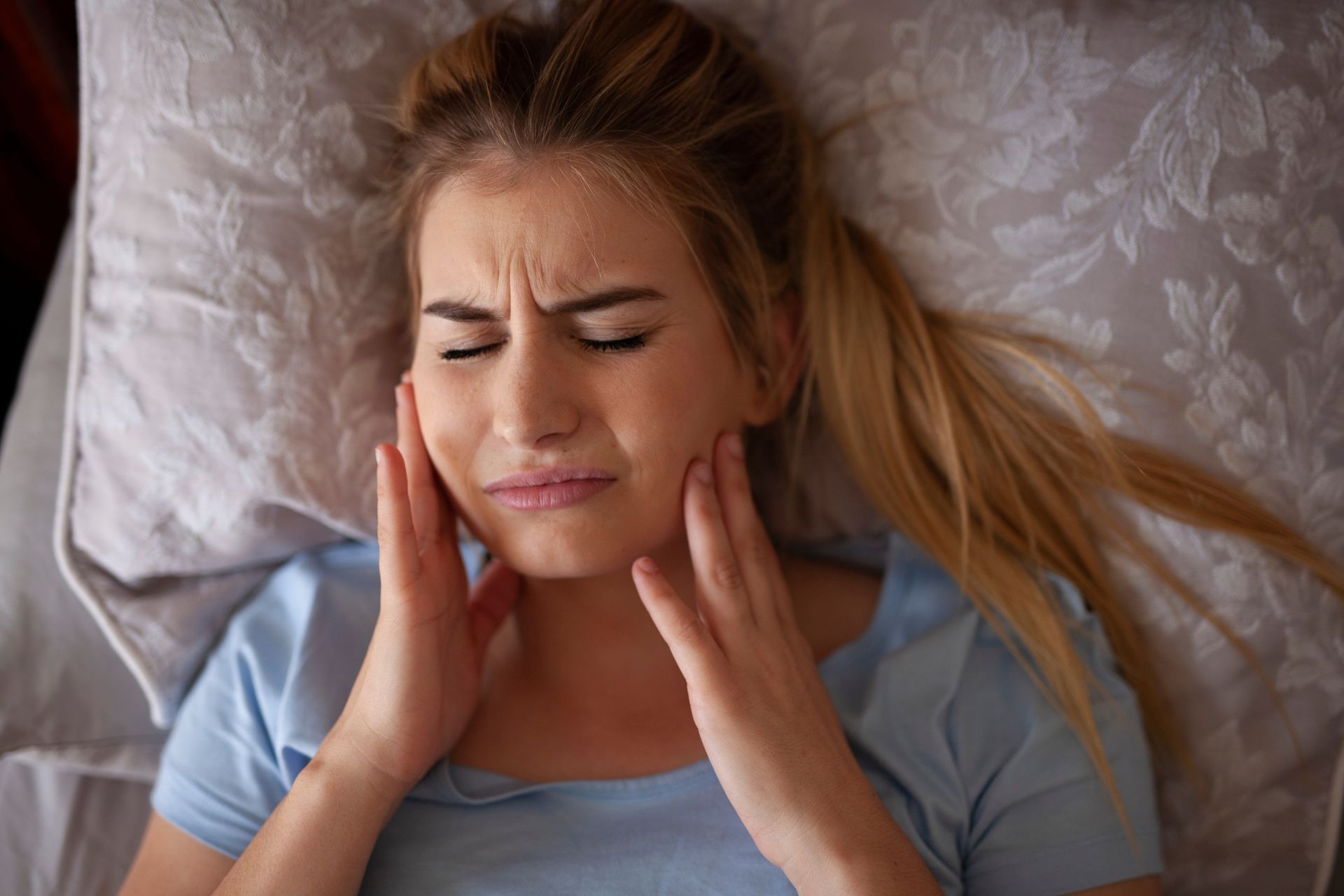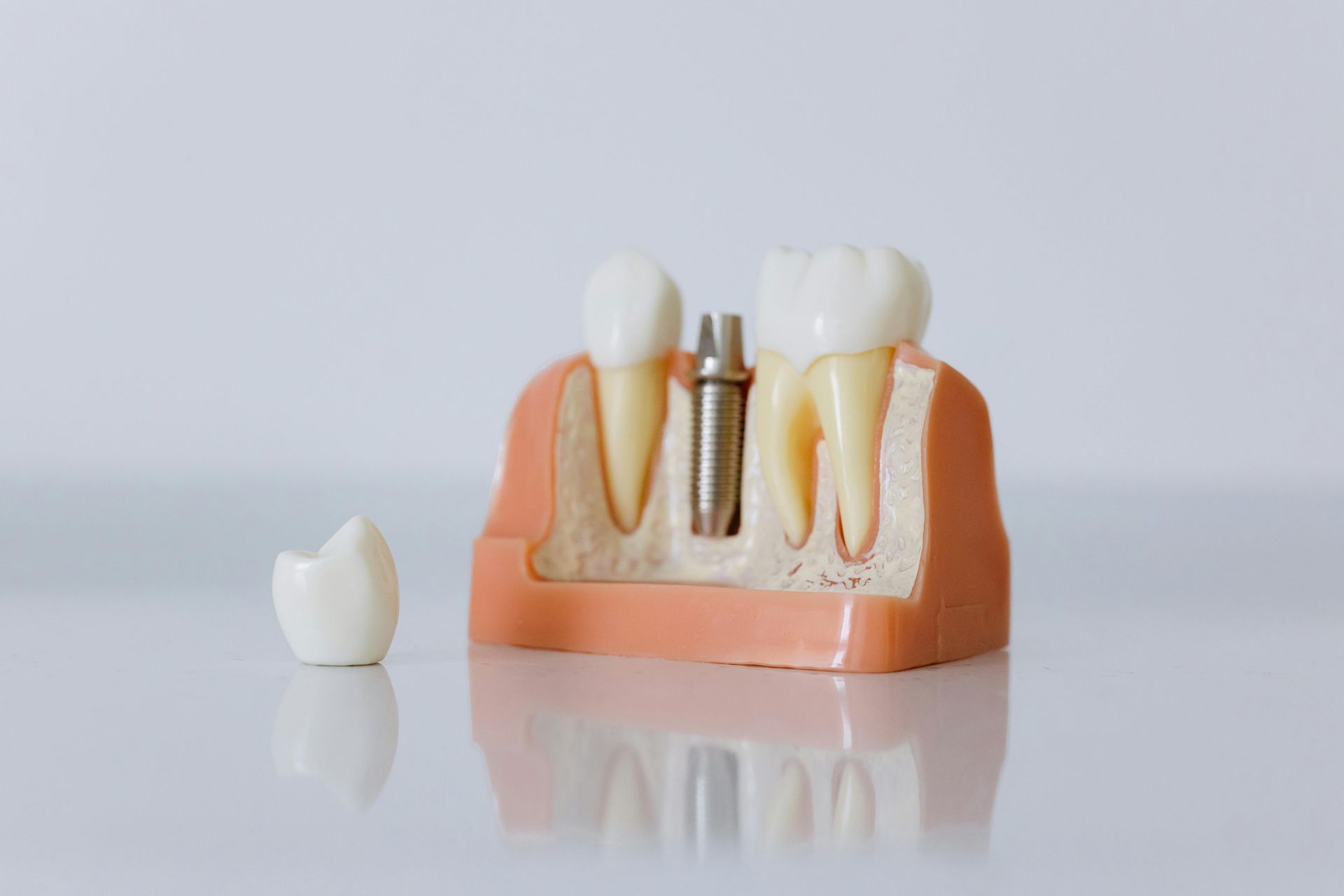HELP ME WITH
BRUXISM (TEETH GRINDING)
Teeth grinding, or bruxism, leads to sore jaws and headaches, often triggered by stress, anxiety, or sleep disorders. Understanding symptoms and causes helps address this disruptive dental issue.

Our dental practice provides compassionate care for bruxism. Treatments include custom mouthguards, stress management, or dental corrections. Find a dentist near you for effective solutions to protect your smile.

What Is
Bruxism?
Bruxism is the involuntary grinding or clenching of teeth, often during sleep (nocturnal bruxism) or while awake (diurnal bruxism). It can wear down teeth, cause pain, and lead to dental issues if untreated. A local dentist can diagnose bruxism and recommend treatments to prevent long-term damage.
Causes of Bruxism
Bruxism can stem from various triggers, including:
- Stress or Anxiety: Work pressure or personal worries can lead to clenching.
- Sleep Disorders: Conditions like sleep apnoea may contribute to grinding.
- Misaligned Teeth: An uneven bite can cause involuntary grinding.
- Lifestyle Factors: Excessive caffeine, alcohol, or smoking can increase the risk.
- Medications: Some antidepressants or stimulants may trigger bruxism as a side effect.
Understanding the cause helps your
local dentist create a treatment plan suited to your needs.
Symptoms of Bruxism
Bruxism can show up in ways that disrupt your daily routine. Common signs include:
- Jaw pain or stiffness, especially in the morning.
- Headaches or earaches, often after waking.
- Worn, chipped, or cracked teeth.
- Tooth sensitivity to hot, cold, or sweet foods.
- Tired or tight jaw muscles.
- Disrupted sleep for you or your partner due to grinding noises.
For example, a busy parent might notice jaw soreness after a stressful week, or a student might spot chipped teeth during exam season. A dentist near you can assess these signs and offer tailored care.
Bruxism Treatment Near You
A dentist near you will examine your teeth and jaw, possibly using X-rays to check for damage. Treatment options include:
- Mouthguards or Splints: A custom-made guard worn at night protects teeth from grinding damage.
- Stress Management: Techniques like mindfulness or counselling can reduce clenching triggered by stress.
- Dental Corrections: Adjusting misaligned teeth or replacing worn fillings can improve your bite.
- Medication Review: Your dentist may consult your GP to adjust medications causing bruxism.
- Physiotherapy: Jaw exercises or massages can ease muscle tension.
Our team prioritises your comfort, using gentle methods to make treatment stress-free. For instance, a nervous patient might worry about wearing a mouthguard, but we ensure it’s comfortable and easy to use.
At-Home Tips for Managing Bruxism
While waiting to see a local dentist, try these steps to reduce discomfort:
- Practise Relaxation: Try deep breathing or meditation before bed to ease stress.
- Apply Warmth: Use a warm flannel on your jaw to relax tight muscles.
- Limit Stimulants: Cut back on coffee, tea, or alcohol, especially in the evening.
- Chew Softly: Avoid hard foods like nuts or chewy sweets that strain your jaw.
- Stay Hydrated: Drink water to prevent dry mouth, which can worsen grinding.
These tips offer temporary relief, but professional bruxism treatment near you addresses the root cause for lasting protection.
When to See a Dentist Near You
Contact a dentist near you if you experience:
- Persistent jaw pain or headaches.
- Visible tooth damage, like chips or wear.
- Sensitivity that affects eating or drinking.
- Grinding noises that disturb your or your partner’s sleep.
Early care prevents complications like cracked teeth or chronic pain. We’ve helped patients find relief from bruxism, restoring their comfort and confidence.
Preventing Bruxism
Protect your teeth with these habits:
- Manage stress with exercise, yoga, or hobbies.
- Visit your local dentist every six months to monitor tooth and jaw health.
- Avoid chewing gum or hard objects that strain your jaw.
- Maintain a consistent sleep routine to reduce grinding triggers.
Simple changes, like cutting back on late-night tea, can make a difference.
Your Trusted Dentist
Book Your Dental Appointment Today
Call us now or
Book online to schedule your consultation with a trusted local dentist.



